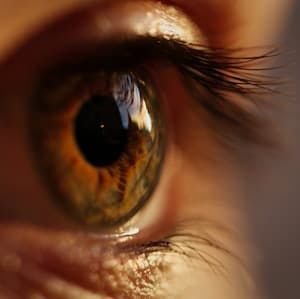Phase 4 Trial Reports Positive Data on Teprotumumab for Thyroid Eye Disease
Announced today by Horizon Therapeutics, the positive and statistically significant data supports the efficacy of teprotumumab across a spectrum of patients with TED regardless of disease activity or duration.
Credit: Marc Schulte/Pexels

Today, Horizon Therapeutics announced positive and statistically significant topline data from a randomized phase 4 clinical trial evaluating teprotumumab-trbw (TEPEZZA) for the treatment of adults with chronic thyroid eye disease (TED) and low clinical activity score (CAS).1
Based on the trial's 24-week data, individuals treated with teprotumumab achieved a 2.41 mm reduction in proptosis from baseline compared with 0.92 mm for those receiving placebo (P = .0004), meeting the primary endpoint. The analysis additionally revealed 62% of patients treated with teprotumumab had a clinically meaningful improvement in proptosis at Week 24 (≥2 mm) compared with 25% of patients receiving placebo (P = .0134).
“Given this new and positive clinical evidence in patients with long-duration TED and low CAS, it is important for physicians to thoroughly assess all of their TED patients to determine whether TEPEZZA might be an option,” said Raymond Douglas, MD, PhD, principal investigator, and director of the Orbital and Thyroid Eye Disease Program, Cedars-Sinai Medical Center.1 “It is important to specifically ask patients if their symptoms are interfering with their ability to work, socialize, and go about daily activities. These conversations can help physicians uncover the true burden of the disease and need for treatment, regardless of how much inflammation they have behind the eye or how long they have been living with the disease.”
In the release, Horizon noted the totality of clinical trial data continues to strongly support the efficacy of teprotumumab across a spectrum of patients with TED regardless of disease activity or duration. Currently, teprotumumab is the only medicine approved by the US Food and Drug Administration (FDA) to treat TED.
The randomized, double-masked, placebo-controlled, parallel-group, multicenter trial evaluated efficacy, safety, and tolerability of teprotumumab (n = 42) compared to placebo (n = 20) in adults with disease duration between 2 – 10 years (mean duration, 5.2 years) and low levels of disease activity (mean CAS, 0.4). The prior pivotal phase 2 and phase 3 trials that formed the basis of the FDA approval evaluated patients with disease duration of ≤9 months and higher levels of disease activity, according to the release.
Topline data at week 24 per the pre-specific intent-to-treat analysis suggest that the primary endpoint was met. Individuals treated with teprotumumab achieved a statistically significant reduction in proptosis from baseline compared to those receiving placebo. Within the pre-specified per-protocol analysis, data indicated the differences between patients treated with teprotumumab and those treated with placebo increased (P = .0006). There were no new safety signals observed in the trial.
The release indicated teprotumumab was linked to infusion reactions in approximately 4% of teprotumumab-treated patients, as well as increased blood glucose or hyperglycemia in approximately 10% of patients in clinical trials. The most commonly experienced adverse reactions, with a ≥5% incidence, were muscle spasms, nausea, alopecia, diarrhea, fatigue, hyperglycemia, hearing impairment, dysgeusia, headache, dry skin, weight decreased, nail disorders, and menstrual disorders.
“We are thrilled with the topline results, which reinforce that TEPEZZA significantly reduces proptosis in people living with TED, regardless of their disease activity or duration, and underscores what we learned from our initial trials and what we have seen through more than three years of real-world use of TEPEZZA,” said Elizabeth H.Z. Thompson, PhD, executive vice president, research and development, Horizon Therapeutics.1 “With TEPEZZA, physicians have a medicine that can be used in a broad range of TED patients, including those with long-duration disease of more than 5 years on average in this trial, which is important because we know the negative impact of the disease can be significant across all types of TED patients.”
References
- Horizon Therapeutics plc announces positive topline data from Tepezza® (teprotumumab-TRBW) phase 4 clinical trial in patients with chronic/low clinical activity score (CAS) Thyroid Eye Disease (ted). Horizon Therapeutics plc. (2023, April 10). Retrieved April 10, 2023, from https://ir.horizontherapeutics.com/news-releases/news-release-details/horizon-therapeutics-plc-announces-positive-topline-data